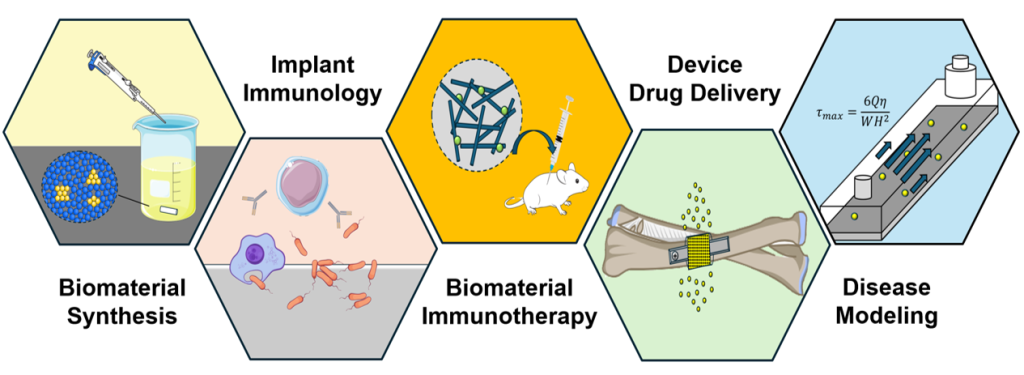
The Tatara Laboratory investigates the host/pathogen/material interface of device-related infection. Implantable devices, such as joint replacements and pacemakers, improve the lives of many patients. However, these devices are more susceptible to infection than native tissues. Once organisms infect the surface of a prosthetic device, a biofilm is formed, and subsequent treatment often requires surgery and long courses of antibiotic therapy.
The Tatara Laboratory seeks to better understand how these organisms evade the immune system, interact with devices, and cause infection. In parallel, we are also developing new types of biomaterials to improve host immunity to resist infection and new ways to locally deliver antibiotics to protect vulnerable devices.
We have a number of exciting projects. One major area is the development of biomaterial-based immunotherapy to prevent periprosthetic joint infection in a murine mode. Another ongoing direction is the characterization of material surfaces that downregulate virulence pathways for mechanoprophylaxis. Please reach out if you are interested in joining our team or collaborating!